It is my great pleasure to introduce Opensource.com's 2022 summer reading list. This year's list contains seven wonderful reading recommendations from members of the Opensource.com community. You will find a nice mix of books covering everything from a fun cozy mystery to non-fiction works that explore thought-provoking topics. I hope you find something on this list that interests you.
Enjoy!
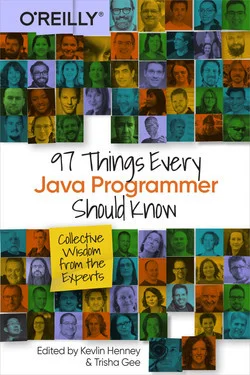
O'Reilly Press
97 Things Every Java Programmer Should Know: Collective Wisdom from the Experts, edited by Kevlin Henney and Trisha Gee
Recommendation written by Seth Kenlon
Written by 73 different authors working in all aspects of the software industry, the secret to this book's greatness is that it actually applies to much more than just Java programming. Of course, some chapters lean into Java, but there are topics like Be aware of your container surroundings, Deliver better software, faster, and Don't hIDE your tools that apply to development regardless of language.
Better still, some chapters apply to life in general. Break problems and tasks into small chunks is good advice on how to tackle any problem, Build diverse teams is important for every group of collaborators, and From puzzles to products is a fascinating look at how the mind of a puzzle-solver can apply to many different job roles.
Each chapter is just a few pages, and with 97 to choose from, it's easy to skip over the ones that don't apply to you. Whether you write Java code all day, just dabble, or if you haven't yet started, this is a great book for geeks interested in code and the process of software development.
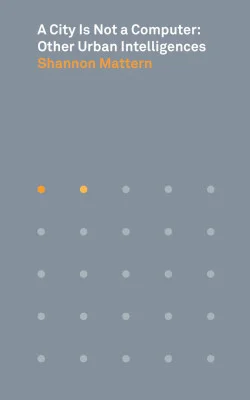
Princeton University Press
A City is Not a Computer: Other Urban Intelligences, by Shannon Mattern
Recommendation written by Scott Nesbitt
These days, it's become fashionable (if not inevitable) to make everything smart: Our phones, our household appliances, our watches, our cars, and, especially, our cities.
With the latter, that means putting sensors everywhere, collecting data as we go about our business, and pushing information (whether useful or not) to us based on that data.
This begs the question, does embedding all that technology in a city make it smart? In A City Is Not a Computer, Shannon Mattern argues that it doesn't.
A goal of making cities smart is to provide better engagement with and services to citizens. Mattern points out that smart cities often "aim to merge the ideologies of technocratic managerialism and public service, to reprogram citizens as 'consumers' and 'users'." That, instead of encouraging citizens to be active participants in their cities' wider life and governance.
Then there's the data that smart systems collect. We don't know what and how much is being gathered. We don't know how it's being used and by whom. There's so much data being collected that it overwhelms the municipal workers who deal with it. They can't process it all, so they focus on low-hanging fruit while ignoring deeper and more pressing problems. That definitely wasn't what cities were promised when they were sold smart systems as a balm for their urban woes.
A City Is Not a Computer is a short, dense, well-researched polemic against embracing smart cities because technologists believe we should. The book makes us think about the purpose of a smart city, who really benefits from making a city smart, and makes us question whether we need to or even should do that.
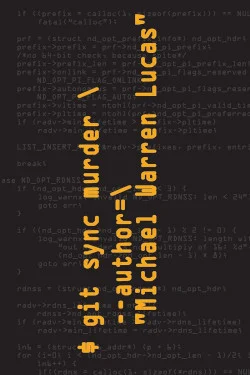
Tilted Windmill Press
git sync murder, by Michael Warren Lucas
Recommendation written by Joshua Allen Holm
Dale Whitehead would rather stay at home and connect to the world through his computer's terminal, especially after what happened at the last conference he attended. During that conference, Dale found himself in the role of an amateur detective solving a murder. You can read about that case in the first book in this series, git commit murder.
Now, back home and attending another conference, Dale again finds himself in the role of detective. git sync murder finds Dale attending a local tech conference/sci-fi convention where a dead body is found. Was it murder or just an accident? Dale, now the "expert" on these matters, finds himself dragged into the situation and takes it upon himself to figure out what happened. To say much more than that would spoil things, so I will just say git sync murder is engaging and enjoyable to read. Reading git commit murder first is not necessary to enjoy git sync murder, but I highly recommend both books in the series.
Michael Warren Lucas's git murder series is perfect for techies who also love cozy mysteries. Lucas has literally written the book on many complex technical topics, and it carries over to his fiction writing. The characters in git sync murder talk tech at conference booths and conference social events. If you have not been to a conference recently because of COVID and miss the experience, Lucas will transport you to a tech conference with the added twist of a murder mystery to solve. Dale Whitehead is an interesting, if somewhat unorthodox, cozy mystery protagonist, and I think most Opensource.com readers would enjoy attending a tech conference with him as he finds himself thrust into the role of amateur sleuth.
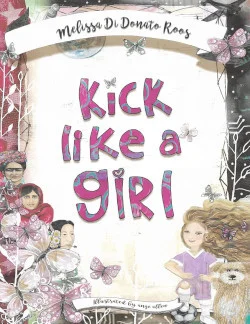
Inner Wings Foundation
Kick Like a Girl, by Melissa Di Donato Roos
Recommendation written by Joshua Allen Holm
Nobody likes to be excluded, but that is what happens to Francesca when she wants to play football at the local park. The boys won't play with her because she's a girl, so she goes home upset. Her mother consoles her by relating stories about various famous women who have made an impact in some significant way. The historical figures detailed in Kick Like a Girl include women from throughout history and from many different fields. Readers will learn about Frida Kahlo, Madeleine Albright, Ada Lovelace, Rosa Parks, Amelia Earhart, Marie Curie, Valentina Tereshkova, Florence Nightingale, and Malala Yousafzai. After hearing the stories of these inspiring figures, Francesca goes back to the park and challenges the boys to a football match.
Kick Like a Girl features engaging writing by Melissa Di Donato Roos (SUSE's CEO) and excellent illustrations by Ange Allen. This book is perfect for young readers, who will enjoy the rhyming text and colorful illustrations. Di Donato Roos has also written two other books for children, How Do Mermaids Poo? and The Magic Box, both of which are also worth checking out.
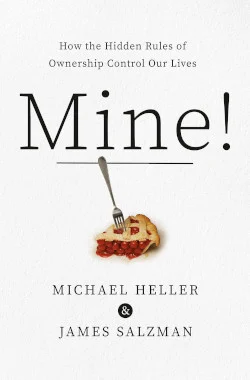
Doubleday
Mine!: How the Hidden Rules of Ownership Control Our Lives, by Michael Heller and James Salzman
Recommendation written by Bryan Behrenshausen
"A lot of what you know about ownership is wrong," authors Michael Heller and James Salzman write in Mine! It's the kind of confrontational invitation people drawn to open source can't help but accept. And this book is certainly one for open source aficionados, whose views on ownership—of code, of ideas, of intellectual property of all kinds—tend to differ from mainstream opinions and received wisdom. In this book, Heller and Salzman lay out the "hidden rules of ownership" that govern who controls access to what. These rules are subtle, powerful, deeply historical conventions that have become so commonplace they just seem incontrovertible. We know this because they've become platitudes: "First come, first served" or "You reap what you sow." Yet we see them play out everywhere: On airplanes in fights over precious legroom, in the streets as neighbors scuffle over freshly shoveled parking spaces, and in courts as juries decide who controls your inheritance and your DNA. Could alternate theories of ownership create space for rethinking some essential rights in the digital age? The authors certainly think so. And if they're correct, we might respond: Can open source software serve as a model for how ownership works—or doesn't—in the future?
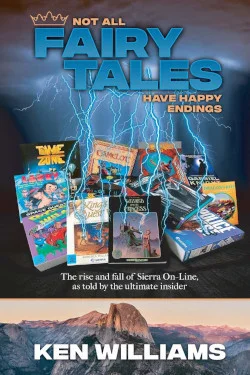
Lulu.com
Not All Fairy Tales Have Happy Endings: The Rise and Fall of Sierra On-Line, by Ken Williams
Recommendation written by Joshua Allen Holm
During the 1980s and 1990s, Sierra On-Line was a juggernaut in the computer software industry. From humble beginnings, this company, founded by Ken and Roberta Williams, published many iconic computer games. King's Quest, Space Quest, Quest for Glory, Leisure Suit Larry, and Gabriel Knight are just a few of the company's biggest franchises.
Not All Fairy Tales Have Happy Endings covers everything from the creation of Sierra's first game, Mystery House, to the company's unfortunate and disastrous acquisition by CUC International and the aftermath. The Sierra brand would live on for a while after the acquisition, but the Sierra founded by the Williams was no more. Ken Williams recounts the entire history of Sierra in a way that only he could. His chronological narrative is interspersed with chapters providing advice about management and computer programming. Ken Williams had been out of the industry for many years by the time he wrote this book, but his advice is still extremely relevant.
Sierra On-Line is no more, but the company made a lasting impact on the computer gaming industry. Not All Fairy Tales Have Happy Endings is a worthwhile read for anyone interested in the history of computer software. Sierra On-Line was at the forefront of game development during its heyday, and there are many valuable lessons to learn from the man who led the company during those exciting times.
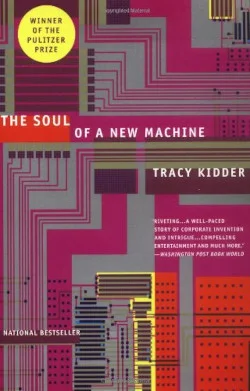
Back Bay Books
The Soul of a New Machine, by Tracy Kidder
Recommendation written by Gaurav Kamathe
I am an avid reader of the history of computing. It's fascinating to know how these intelligent machines that we have become so dependent on (and often take for granted) came into being. I first heard of The Soul of a New Machine via Bryan Cantrill's blog post. This is a non-fiction book written by Tracy Kidder and published in 1981 for which he won a Pulitzer prize. Imagine it's the 1970s, and you are part of the engineering team tasked with designing the next generation computer. The backdrop of the story begins at Data General Corporation, a then mini-computer vendor who was racing against time to compete with the 32-bit VAX computers from Digital Equipment Corporation (DEC). The book outlines how two competing teams within Data General, both wanting to take a shot at designing the new machine, results in a feud. What follows is a fascinating look at the events that unfold. The book provides insights into the minds of the engineers involved, the management, their work environment, the technical challenges they faced along the way and how they overcame them, how stress affected their personal lives, and much more. Anybody who wants to know what goes into making a computer should read this book.
There is the 2022 suggested reading list. It provides a variety of great options that I believe will provide Opensource.com readers with many hours of thought-provoking entertainment. Be sure to check out our previous reading lists for even more book recommendations.
- 2021 Opensource.com summer reading list
- 2020 Opensource.com summer reading list
- 2019 Opensource.com summer reading list
- 2018 Open Organization summer reading list
- 2016 Opensource.com summer reading list
- 2015 Opensource.com summer reading list
- 2014 Opensource.com summer reading list
- 2013 Opensource.com summer reading list
- 2012 Opensource.com summer reading list
- 2011 Opensource.com summer reading list
- 2010 Opensource.com summer reading list








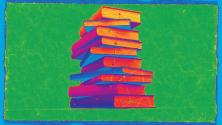

1 Comment